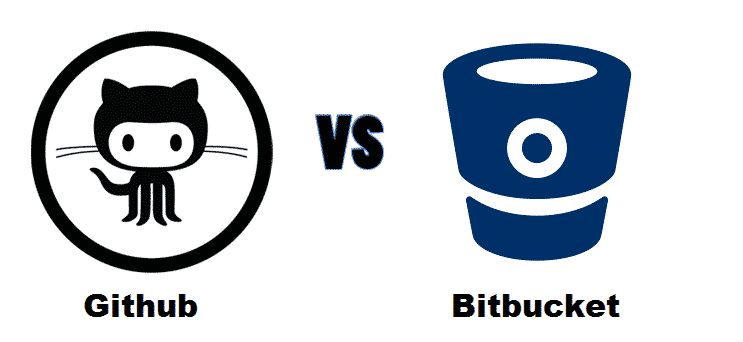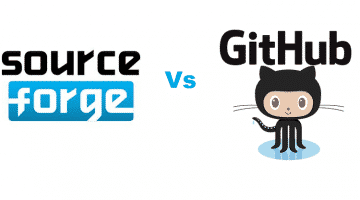If you want a large developer team to collaborate and work on a project, you need a platform to upload your code. You can choose any repository hosting platform but the problem is not every repository host that makes your developers productivity to create products as planned. Github and Bitbucket are two most popular repository hosts that provide its customer public and private repositories. You would assume that it is their features that differ them but there are various other shuttle differences that make one score over the other. You can hire freelancers to set up your project on any of these platforms and get the developers work on it in a collaborative manner.
Interface –
Most of the developers find Github’s user interface more convenient than Bitbucket and hence, Github has more customers than Bitbucket. On the other hand, Github’s editor is slightly inconsistent and one has to set the language of the repo all the time which is annoying. But the issue is not there in Bitbucket and their editor is very developer-friendly. It depends from developers to developers as to which one they find most convenient.
Winner – Github because most of the developers prefer it over Bitbucket.
Extensions –
Whichever platform you prefer to work, there must be ample app integrations and extensions to make the platform feature-rich and convenient. The platform that has more useful extensions is the clear winner as it helps to manage a big project effortlessly. Github has nearly 100 third-party integrations and some of them are exclusive to Github. QuatifiedCode is a popular exclusive integration that scans the codes and notified the issues and even offers solutions that you can approve to change the code automatically. But the drawback is that the use of too many third-party apps is you might face problem creating a standalone product without relying on third-party extensions.
On Bitbucket, there is Atlassian Marketplace where you can find over 2400 apps. Atlassian is the company that owns Bitbucket and their marketplace has many exclusive and in-house extensions. As a matter of fact, Github uses some of the Atlassian’s extensions as they are quite popular in the market. The advantage is that it allows cross-platform product creation and your standalone product will have all the pre-built extensions for professional integration.
Winner – Bitbucket because there are more apps and most of the mare not dependent on third-party.
Public and Private Repository –
Github and Bitbucket have different approaches and thence, their pricing models are quite different. While Bitbucket offers unlimited private repos for free while Github charges for the same. Github does not limit the number of contributors and this is why more customers are on Github. Having a large team is instrumental in the development of a large project and it is meaningless to pay for every additional contributor. If you are going to develop an open source product, Github is the way to go. On the other hand, if you are into enterprise product development, Bitbucket is best for you.
Winner – There is no clear winner as it depends on the nature of your project but Github has an edge due to unlimited contributor option.
Price Models –
Pricing is a major concern for choosing a perfect repository. Github charges $9 per user for cloud repository. On the other hand, Bitbucket’s pricing model is based on the number of developers. It offers $10, $20, $50, $100 per month plans for 10, 20, 50, or 100 developers’ team. Bitbucket is a clear winner yet Bitbucket has less than half the user Github has because there are more independent developers working on Github. On an enterprise level, Bitbucket is a clear favorite.
If you want to have your own server through these repository platforms, both Github and Bitbucket have enterprise hosting solution. While you are working on a big project, you need to post freelance jobs to hire qualified people into the team and hence, it is instrumental to have your own server rather than purchasing plans all the time for new team members. Github Enterprise Server costs $2500 for 10 users per year while Bitbucket Enterprise Server cost $1800 per 25 users per year.
Winner – Bitbucket is a clear winner and it is nearly 9-10 times cheaper if you have a large team.
Even though Github is the most popular repository platform where various popular open source products were created, it is Bitbucket that has more feature and better price model. The reason for the low price in Bitbucket is not because it is anyhow less developer-friendly but because it wants to attract customers from Github and grow its popularity. It won’t be surprising to see that companies exiting Github and joining Bitbucket in the near future. For the time being, it is safe to assume the Github is best for open source development while Bitbucket is ideal for enterprise product development.




